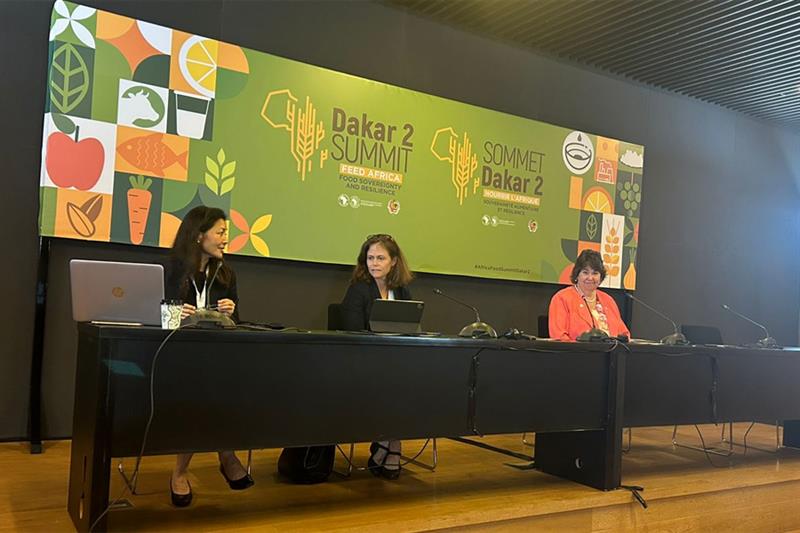|
Getting your Trinity Audio player ready…
|
By Baboloki Semele
Dakar, Senegal
The African Development Bank, in partnership with the government of Canada, is geared at financing agricultural small and medium enterprises, in the quest to feed Africa. The initiative was launched on the margins of the Dakar Second Summit on Food in Africa, which was held in Dakar, Senegal, last week.
In announcing the initiative which is one of the tangible and take-home outcomes of the summit, the vice president of the African Development Bank for agriculture, health, and social development, Dr. Beth Dunford noted that the Africa Food Summit has shown a strong commitment to addressing the financing gap for SMEs and creating an environment that encourages private sector investments in climate-smart, gender-oriented agricultural solutions.
Referring to the initiative in question, Dr. Dunford noted that the Agri-food SME Catalytic Financing Mechanism is aimed at ensuring that SMEs continue to sustain Africa’s agricultural value chains and drive development outcomes. She further highlighted that the Agrifood catalytic financing mechanism is a special fund housed at the AfDB that will provide long-term concessional capital complemented by grant-based technical assistance to catalyze increased financing and investment to small and medium enterprises serving agrifood system in regional member countries.
This effort aims to enable the intermediaries to make loans to agri-SMEs working with women, as well as to those that build resilience to climate change. For her part, Anita Vandenbeld, Parliamentary Secretary to Canada’s Minister of International Development said the best way to build up food security in Africa is to work with small and medium-sized agriculture and food businesses.
She highlighted through a shared commitment between Canada and the African Development Bank, the Agri-food SME Catalytic Financing Mechanism will advance resilient growth and climate adaptation, adding that the initiative will also help African SMEs to pursue climate smart models, and support women by shifting attitudes that perpetuate gender gaps in financial inclusion. She announced the government of Canada’s contribution of $85 million to this mechanism.
She highlighted the main reason why Canada came on board is that women reinvest their profits in educating their children, feeding their families and communities as well as expanding local enterprises whenever they are given an opportunity.
The initiative is set to de-risk investments to unlock private sector financing, deploy blended finance to sustainably address funding gaps, address demand side and supply side gaps, target a portfolio of gender-oriented climate smart agri-SMEs as well as deliver financing through investment channels.
According to the AfDB observation, small, and medium agri-businesses produce, process, or transport around 65 percent of Africa’s food, yet these businesses face a financing gap of more than $180 million annually.
The ACFM will contribute to the AfDB’s Affirmative Finance Action for Women in Africa (AFAWA) target of closing the $42 billion access-to-finance gap for women-led SMEs to accelerate their growth. The two partners, Canada and AfDB announced that the ACFM, as a multi-donor trust fund, is open to and welcomes the participation and contribution of other development partners.
Dakar 2 was held under the chairmanship of the President of the Republic of Senegal and the Chairperson of the African Union Macky Sall, the government of the Republic of Senegal, and the AfDB Group, under the theme “Feed Africa: Food Sovereignty and Resilience.”
